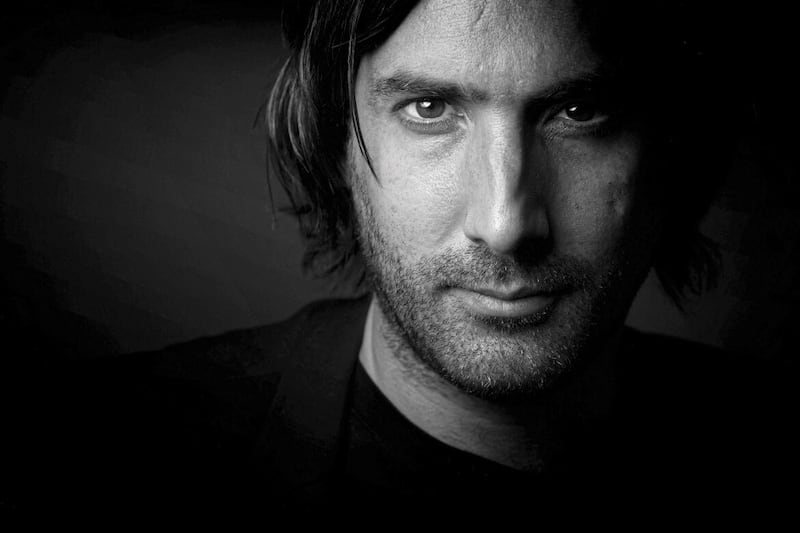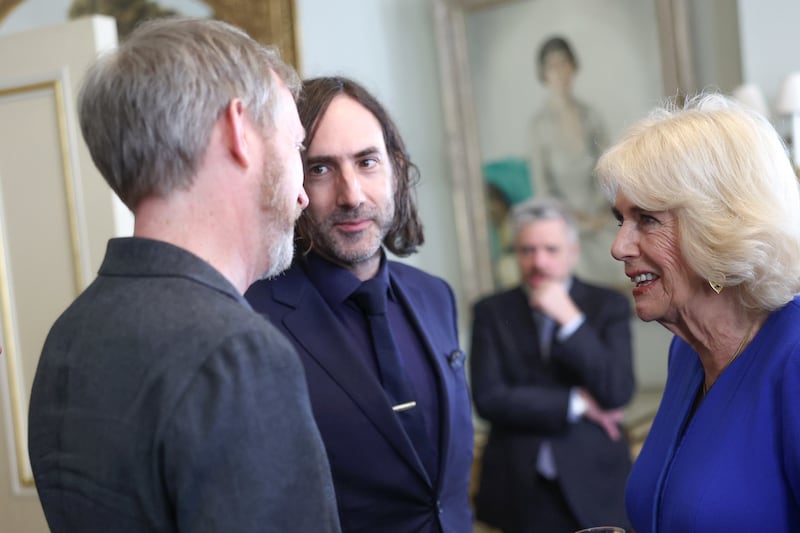Suburban Dublin devastated by airstrikes, a government descending into tyranny, civil liberties eroded and a family facing the question whether to stay or flee is the scenario posed in the International Booker Prize-shortlisted novel Prophet Song.
A decade ago, this may have been viewed as a dystopian tale far removed from reality. However, we have almost become normalised to such narratives as, each day, scenes in Syria, Afghanistan, Libya, Ukraine and now Palestine are played out on our news bulletins.
Paul Lynch’s propulsive fifth novel tells the story of microbiologist and mother-of-four Eilish Stack who finds herself caught within a collapsing society and the unpredictable forces of the newly formed Garda National Service Bureau.

Left as the sole parent to her four children when her trade unionist husband ‘disappears’ after attending a protest, she is forced to do whatever it takes to keep her family together.
One of six novels to be shortlisted for the prestigious literary award, the Booker judges commented that his novel "captures the social and political anxieties of our moment".
Dublin-based Lynch, who grew up in Co Donegal, is adamant Prophet Song “is not a political novel”.
Whilst “humanity is at its core”, he concedes that he was moved by the global plight of refugees and the West’s “deep-rooted indifference” during the writing process.
“I don't set out with a grievance in mind. I don't sit down with the goal of solving a problem. But at the same time, when I sat down to write this book in 2018, there was a sense that the world around us had shifted," he says.
“It's very hard not to ignore these particular energies as they're shaping themselves around you and pressing down on the edges of the fiction.”
Read more:
- Two Irish authors on 2023 Booker Prize shortlist
- Former teacher of Booker Prize winner Anna Burns celebrates 'innate' talent of 'quiet' Ardoyne schoolgirl
Rather than a dystopian novel, Lynch describes Prophet Song as a “counterfactual present contemporary story”.
“To understand, we must first experience the problem for ourselves. I wanted to bring in a high degree of realism. I wanted to deepen the reader’s immersion to such a degree that by the end of the book, they would not just know, but feel this problem for themselves.”
Key to achieving this was his decision to set the book in modern day Ireland.
“I do think that there is a monumental lack of empathy towards the general refugee plight. I think the main reason for this is the inability to truly imagine what the complexities are that takes an ordinary educated person to take one of those boats.

“Fiction in the last 10 years has been grappling with this subject, but they haven’t examined the inner clockwork and day-to-day life of someone who is driven to that point of no return,” explains the 46-year-old.
Leaving home for an unknown existence beyond Ireland’s borders is a choice made all the graver for his protagonist Eilish as her father, Simon, who has early stage dementia.
“When you get into your 40s you're often getting squeezed from every direction. Your children have demands, your parents are getting older and frailer and your career demands are greater,” says Lynch, who was puzzled when I questioned his decision to write through a female voice.
“The idea that I'm a man and I don't know how to write for women is bizarre. If you're a painter, you paint all the colours.
“In writing we must be free to dream and if you're a serious writer, you should be able to inhabit any character that you want,” he adds.

I spoke with Lynch over Zoom. He sat in front of a stunning floor-to-ceiling bookcase – one of two in his home.
“I consider a well-stocked shelf as a source of energy if you're a writer,” he boasts.
When pressed as to his favourite authors, he spoke passionately of the Irish greats Joyce, Beckett and Heaney, as well as American writers Conrad, Faulkner, McCarthy, O’Connor.
Deliberately told without paragraph breaks, Prophet Song has a breathless, tense and claustrophobic atmosphere of entrapment.
“The sense of imprisonment in the story is really important,” enthuses Lynch. “When the reader starts reading, they may not notice it at first, but gradually there's no air and there is no escape for the characters. You get this feeling of fate.”
His descriptive powers also help articulate the intensity of Eilish’s desperation and help the reader visualise the reality of her situation.
As a film critic, I asked him if he thinks about his writing visually and the prospect of his books being adapted for the screen.
"No, that's neither here nor there. If it happens I'll take the money and run," laughs Lynch, who wouldn’t hesitate in casting Outlander actress Caitriona Balfe in the role of Eilish.
Carefully crafting sentence by sentence and editing, as he writes, “looking for deeper meanings and connections”, Lynch took four years to write Prophet Song. During this time he survived a worldwide pandemic, Covid and a cancer scare.
“With the long Covid I had brain fog and serious fatigue. At times I had to ask myself if I had the energy and attention to write,” he admits.
Whilst it slowly cleared, Lynch still suffered recurrent upper chest infections and a referral to a consultant and chest scan led to the accidental discovery of a tumour.
“The radiologist went a little bit lower and caught a tumour in my kidney, which is an extraordinary piece of luck if you want to view it that way.”
Lynch had his kidney removed and, in another stroke of good timing, was offered preventative immunotherapy treatment as part of a clinical trial at Tallaght.
His personal journey makes his Booker Prize shortlist success even more rewarding.
This is a wondrous moment for me and I'm so pleased to be sharing it with these superb writers including my friend Paul Murray. Seamus Heaney wrote in North: "Expect aurora borealis in the long foray..." Last night, there was light in the sky. #BookerPrize2023 pic.twitter.com/C0Nn4En5eB
— Paul Lynch (@paullynchwriter) September 22, 2023
“You don't come through a cancer diagnosis and stare into the face of death without being changed. Everything after that expands in terms of gratitude and life becomes more subtly enriched, more colourful.
“The Booker came exactly a year later, so it felt like a chapter had closed and a new and exciting chapter had opened,” says Lynch, who admits he even smiles now when his five- and eight-year-olds start to bicker.
He is one of two Irish writers who made the final Booker Prize shortlist. Paul Murray’s The Bee Sting depicts the dysfunctional, hapless lives of a rural Irish clan.
“Having two Irish writers on the Booker Prize shortlist is a strange and extraordinary achievement. We are frenemies now,” he laughs.
Despite a potential prize pot of £50,000 at stake, as well as a guaranteed increase in sales, Lynch firmly has his feet on the ground and his hands on his keyboard.
“To get this far in itself is transformative. For me, writing is all I'm interested in. I like to disappear into the sentences – that's where the real satisfaction comes.”
‘Together these works showcase the breadth of what world literature can do, while gesturing at the unease of our moment.’
— The Booker Prizes (@TheBookerPrizes) September 21, 2023
We are delighted to reveal the #BookerPrize2023 shortlist. Huge congratulations to all six authors.
Find out more: https://t.co/0vTNpasvxq pic.twitter.com/Rrt7Gyq4lW
The winner of The International Booker Prize 2023 will be announced on November 26 at a ceremony at Old Billingsgate in London. They will receive £50,000 and a trophy which has been named Iris in honour of the writer Iris Murdoch.
Also on the shortlist is British author Chetna Maroo’s debut novel Western Lane, American novelist Jonathan Escoffery for If I Survive You, Canadian author Sarah Bernstein’s Study For Obedience and American author Paul Harding is recognised for This Other Eden.

Prophet Song by Paul Lynch is published by Oneworld and is out now.







